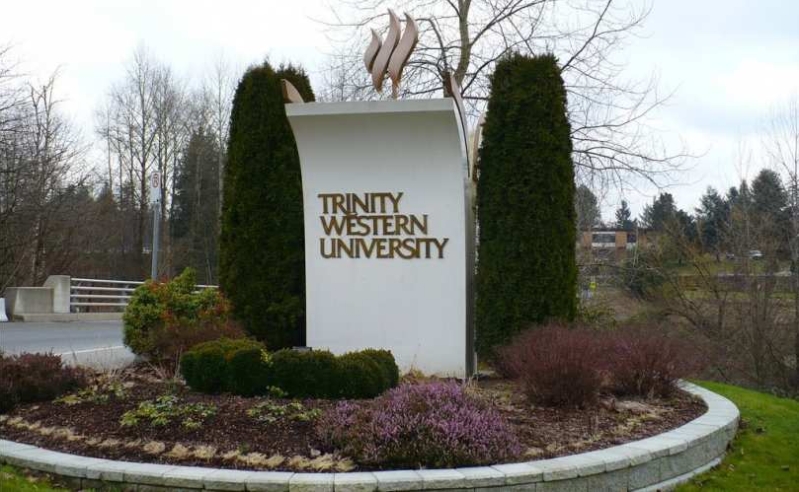
Trinity Western University, a Christian school under fire from Canada's homosexual community due to its views regarding sexuality and same-sex relationships, has secured a groundbreaking legal victory in its effort to open a law school in British Columbia.
According to CBC News, the Evangelical Christian school won round three of its lengthy battle with Canada's legal profession on Thursday after the B.C. Supreme Court ruled the province's lawyers had violated Canada's Charter of Rights and Freedoms when they rejected in advance graduates of the Langley, B.C. Christian university's proposed law school.
In a 43-page decision, B.C. Supreme Court Chief Justice Christopher Hinkson chided the society for "breaching its duty of procedural fairness and neglecting to fully consider the school's charter rights."
The society's board of directors - or benchers - had initially accredited the school in April, 2014. However, less than six months later, the group reversed the decision, and "acted outside their authority" by deferring to a membership vote, Justice Hinkson wrote.
The judge ruled the benchers allowed the non-binding vote to "wrongfully fetter" their discretion and "supplant" their judgment.
"The evidence is clear ... the benchers allowed the members to dictate the outcome of the matter," wrote Justice Hinkson. "The evidence in this case and the relevant precedents conclusively establish that the decision does infringe the petitioners' Charter right to freedom of religion."
"I accept the assertion of the petitioners that they were entitled to, and find that they were deprived of, a meaningful opportunity to present their case fully and fairly," he added.
The Globe and Mail notes that Trinity Western has drawn criticism over a long-standing requirement that all students and staff sign a covenant pledging to abstain from sexual intimacy outside of marriage between one man and one woman.
Thus, Hinkson's decision was made despite months of fierce lobbying by Canada's activist homosexual community, who argued it was discriminatory against homosexuals for the school to require all students and staff to sign a covenant pledging adherence to Christian values.
Spokeswoman Amy Robertson said Trinity Western is celebrating Thursday's ruling. "We are really excited," Ms. Robertson said. "The court has recognized that freedom of religion and freedom of conscience - the freedom to believe as you wish - is something that's important for all Canadians."
The Association for Reformed Political Action, an intervener in the case, concurred: "This decision corrects the false premise that members of Christian communities are somehow less suitable for public engagement in an increasingly secular society," André Schutten, the group's Canadian legal counsel, said.
"It affirms that the door to Canada's public square is still open for Christians, even as society is abandoning its Christian principles," he added.
Bruce Clemenger, President of The Evangelical Fellowship of Canada, also praised the decision in a statement emailed to the Gospel Herald: "We welcome the outcome of the decision and the court's recognition that the Law Society's refusal to recognize future TWU law graduates' degrees 'conclusively... infringe[s] [their] right to freedom of religion'."
Trinity's law school was originally slated to open in the fall of 2016, but executive director Earl Phillips said earlier that classes would be delayed by at least two years.






